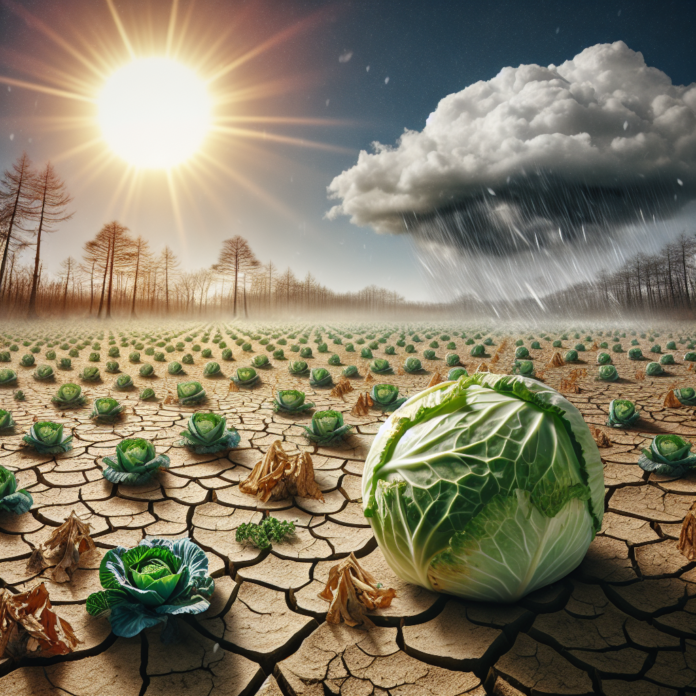Climate Change Causes Cabbage Shortage in Japan
Climate Change Fuels Japanese ‘Cabbage Shock’
In recent months, Japan has been grappling with an unexpected agricultural crisis known as the ‘cabbage shock.’ This phenomenon, which has emerged as a direct consequence of climate change, is causing significant disruptions in the country’s cabbage supply. The alarming rise in temperatures, erratic weather patterns, and increased frequency of extreme weather events are all contributing to this situation, which has left farmers and consumers alike feeling the heat.
The Impact of Extreme Weather
The recent summer heatwaves in Japan have had dire effects on cabbage crops. Farmers are facing challenges such as heat stress, drought conditions, and heavy rainfall, all of which can lead to reduced yields and poor-quality produce. Additionally, pests and diseases thrive in warmer conditions, further threatening crop health. The result has been a dramatic increase in cabbage prices, making it a pressing concern for both consumers and retailers.
Economic Ramifications
The rise in cabbage prices has sparked worries about food inflation in Japan. Cabbage is a staple ingredient in many traditional Japanese dishes, including okonomiyaki and yakisoba. As prices soar, households may be forced to adjust their diets or seek alternatives, impacting local culinary culture. Furthermore, the economic strain on farmers, who are already battling the effects of climate change, could lead to long-term challenges for the agricultural sector.
Farmers’ Adaptation Strategies
In response to the cabbage shock, many farmers are exploring adaptive farming techniques. This includes investing in climate-resilient crop varieties, implementing water-saving irrigation systems, and utilizing technology to monitor weather conditions more effectively. Some farmers are also diversifying their crops to reduce reliance on cabbage, which could help stabilize their income during unpredictable weather events.
Government and Community Response
The Japanese government is stepping in to provide support for affected farmers. Initiatives include financial assistance, research funding for sustainable farming practices, and educational programs aimed at improving resilience against climate change. Community groups are also playing a vital role, organizing local markets to promote the sale of cabbage and other vegetables directly from farmers, thus helping to stabilize prices.
Global Implications
The ‘cabbage shock’ in Japan serves as a microcosm for the broader implications of climate change on global agriculture. As extreme weather events become more common, many countries will face similar challenges, threatening food security and agricultural livelihoods worldwide. This situation underscores the urgent need for cooperative international efforts to mitigate climate change and support sustainable agricultural practices.
Conclusion
As Japan navigates the complexities of the cabbage shock, the situation highlights the interconnectedness of climate patterns, agriculture, and economies. By fostering resilience and adapting to changing conditions, Japan can work towards securing a stable food system for the future while addressing the pressing realities of climate change.


